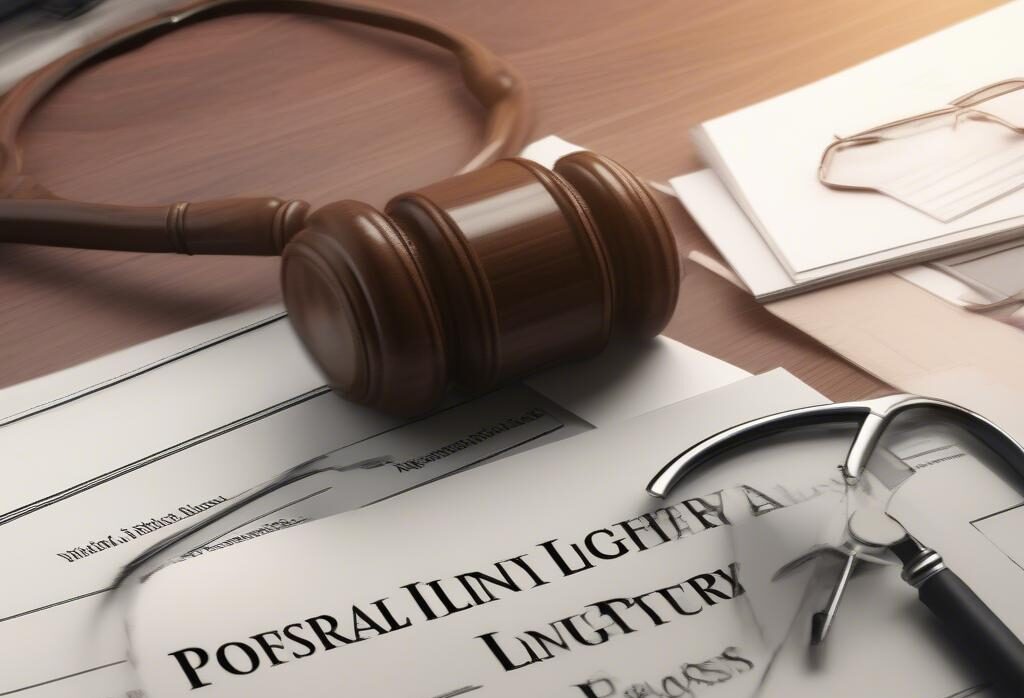When you think of insurance adjusters, you probably picture someone in a suit, wielding a calculator like a lightsaber, ready to slash your settlement into tiny pieces.
Okay, maybe that’s dramatic—but not entirely wrong. These folks play a massive role in personal injury settlements, and while they might seem friendly (at first), make no mistake: they’re here for the insurance company, not you.
Understanding what they do, how they think, and how to handle them can mean the difference between a decent settlement and a “Why did I settle for that?” moment. So, grab a snack and let’s demystify the world of insurance adjusters.

Top Takeaways and Key Concepts
Insurance adjusters work for the company, not you, and aim to minimize claim payouts.
Document all injuries, medical records, bills, and accident details to strengthen your claim.
Avoid giving recorded statements or casual comments that could be used against you.
Be prepared to negotiate; consider legal representation to counter lowball offers effectively.
Recognize common tactics like delaying claims, disputing records, or blaming you for accidents.
Summary of This Article
Please Note: This post may contain affiliate links. If you click one of them, we may receive a commission at no extra cost to you. As an Amazon Associate, I earn from qualifying purchases.
This article explains the role of insurance adjusters in personal injury claims and how to handle them strategically. Adjusters work for the insurance company, often using tactics to reduce payouts, such as disputing medical records or blaming the claimant. Effective preparation includes thorough documentation of injuries, medical treatment, and accident evidence. Claimants should avoid informal statements and consider legal representation for negotiations and countering low offers. Understanding adjuster tactics, staying organized, and leveraging an attorney significantly improve the chances of a fair settlement.
Who Are Insurance Adjusters, Anyway?

Think of insurance adjusters as the middlemen (and women) between you and the insurance company’s money vault. Their job is simple: investigate claims and decide how much, if anything, the insurance company should pay out. And, spoiler alert, their goal isn’t to hand you a blank check.
Adjusters work for the insurance company, not you. This means they’re trained to minimize payouts while still keeping you just satisfied enough to not sue. They’re like that one friend who borrows $50 but only pays back $20—and somehow makes it sound like they’re doing *you* a favor.
Interestingly enough, adjusters often deal with hundreds of cases at a time. So while you’re agonizing over your one claim, they’re juggling enough files to build a paper fort. This can work in your favor if you know how to present your case effectively—more on that later.
How Do Insurance Adjusters Evaluate Your Claim?
To be fair, not all adjusters are evil masterminds plotting your financial downfall. They use specific guidelines to evaluate your claim, which can include medical bills, lost wages, and, yes, even your pain and suffering. But don’t expect them to roll out a red carpet for your emotional distress.
First, they’ll look at your medical records. Did you see a doctor right after the accident, or did you wait until the pain became unbearable? If there’s a delay, they might argue you weren’t really hurt—or worse, that your injuries came from something else. (“Sure, you were in a car accident, but maybe you got whiplash at that trampoline park last week?”)
Adjusters also assess the severity of your injuries. Broken bones? That’s worth more than a sprained wrist. Permanent disability? Cha-ching. Of course, they’ll still try to lowball you because, well, that’s kind of their job.
The “Friendly” Adjuster: A Wolf in Sheep’s Clothing
Ah, the friendly adjuster. They’ll call you after your accident, sounding genuinely concerned. “How are you feeling?” they’ll ask, as if they’re about to send you a Get Well Soon card. Don’t be fooled. This friendliness isn’t because they care—it’s because they want you to let your guard down.
Here’s the thing: anything you say to an adjuster can (and will) be used against you. If you casually mention, “I’m feeling okay today,” they might jot that down as evidence you’re not really injured. And if they ask for a recorded statement? Run. Better yet, politely decline and let your attorney handle it.
By the way, watch out for the early settlement offer. Adjusters love to dangle quick cash in front of you before you’ve even had a chance to see a doctor. It’s like offering someone a cookie to settle for the crumbs.
The Role of Adjusters in Negotiation
Let’s see, now we’re getting into the fun part: negotiations. This is where adjusters really shine—or, depending on your perspective, where they become the final boss of your claim.
They’ll analyze every detail of your case, from medical reports to witness statements, and determine what they think your claim is worth. Spoiler alert: their number is usually much lower than yours.
Negotiating with an adjuster can feel like haggling at a yard sale. They’ll start with a low offer, hoping you’ll bite. Your job? Stand your ground. Provide evidence to support your claim, including medical records, repair bills, and photos of the accident. The more documentation you have, the stronger your case.
On the other hand, if you’re not confident in your negotiation skills, this is where an attorney can save the day. They’ll know how to counter lowball offers and push for fair compensation, all while you avoid the stress of back-and-forth arguments.
Common Tactics Adjusters Use to Minimize Payouts
Insurance adjusters are experts at their craft, and that craft is paying you as little as possible. Some of their go-to tactics include:
1. Delaying Your Claim: They’ll drag their feet, hoping you’ll get desperate enough to accept a lower offer.
2. Disputing Medical Records: Adjusters love to play doctor, questioning whether your treatments were “necessary” or “reasonable.” (Spoiler alert: they’re not actual doctors.)
3. Blaming You: If they can pin even part of the accident on you, they’ll reduce your payout faster than you can say “comparative negligence.”
Stay alert and don’t let these tactics catch you off guard. Knowledge is your best weapon.
Why You Should Never Face an Adjuster Alone
To put it bluntly, dealing with an adjuster without an attorney is like playing chess against a grandmaster after reading *Chess for Dummies*. Sure, you might get a few moves right, but odds are you’ll end up cornered. Adjusters know the legal system inside and out, and unless you have the same expertise, you’re at a disadvantage.
Hiring an attorney levels the playing field. They’ll know when the adjuster’s trying to pull a fast one, and they’ll have the skills to fight back. Plus, having an attorney means less stress for you. Let’s face it, who wants to spend their evenings arguing about medical bills?
What Happens After the Adjuster Makes an Offer?
Once the adjuster makes an offer, you have a choice: accept, reject, or counter. If you think the offer is fair (and your attorney agrees), great! Take it and celebrate with a nice dinner. If not, it’s time to negotiate. Remember, you’re not obligated to accept their first—or even second—offer.
If negotiations stall, your attorney might recommend filing a lawsuit. This is often enough to make the insurance company take your claim more seriously. By the way, don’t worry about seeing the inside of a courtroom; most cases settle long before they reach trial.
Conclusion: Know the Game, Play It Smart
Insurance adjusters are a necessary part of the personal injury claim process, but understanding their role can help you navigate it without losing your mind—or your settlement. Remember, they’re not your friends, but they’re not unbeatable either. With the right preparation, documentation, and legal representation, you can come out on top.
Suggested Resources:
– How Insurance Adjusters Evaluate Personal Injury Claims
https://www.claimsinfo.com/insurance-adjusters-role
– Top Negotiation Tips for Personal Injury Settlements
https://www.nolo.com/settlement-negotiation
– Why You Need an Attorney for a Personal Injury Claim
https://www.attorneyresourcehub.com/why-hire-lawyer
Frequently Asked Questions
What does an insurance adjuster do in a personal injury claim?
An insurance adjuster investigates the accident, reviews medical records, and determines how much compensation the insurance company should offer for your injuries.
Who does the insurance adjuster work for?
Adjusters work for the insurance company, not for you. Their primary goal is to minimize payouts while settling claims efficiently on behalf of the insurer.
How do adjusters calculate settlement offers?
They evaluate medical expenses, lost wages, and injury severity while referencing internal guidelines. However, they often begin with a lower offer than your claim’s full value.
Should I give a recorded statement to the insurance adjuster?
No. Avoid giving recorded statements without legal advice, as your words can be used to reduce or deny your claim later in the settlement process.
What tactics do adjusters use to lower payouts?
Common tactics include delaying the claim, questioning medical treatment, disputing liability, or suggesting that you share fault in the accident.
Do I need an attorney when dealing with an insurance adjuster?
While not required, hiring a personal injury attorney can help you counter lowball offers, navigate legal complexities, and secure a fair settlement.
What happens after the adjuster makes an offer?
You can accept, reject, or negotiate the offer. If negotiations fail, your attorney may recommend filing a lawsuit to increase the insurer’s willingness to settle fairly.

Kevin Collier is a legal expert passionate about simplifying complex legal concepts for everyday individuals. With a focus on providing clear, practical information, he covers a wide range of topics, including rights, responsibilities, and legal procedures. Kevin aims to empower readers with the knowledge they need to navigate the legal landscape confidently, ensuring they can make informed decisions regarding their legal matters. Through insightful articles and easy-to-understand resources, he helps demystify the law, making it accessible to all.










